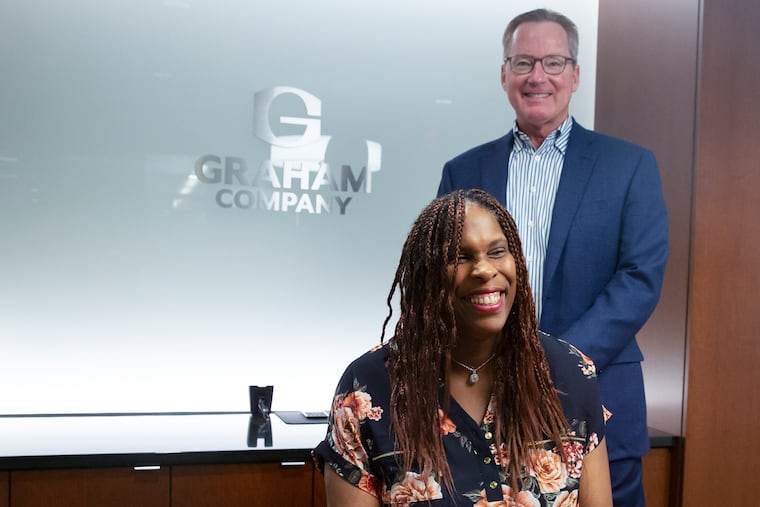Company exec says the best way to change the lives of those with disabilities is to hire them.
Mike Mitchell of The Graham Company is convening a summit of heavy-hitting business leaders to discuss why hiring people with "neurodiverse" abilities is good for society — and good for the bottom line.

On April 30, Mike Mitchell, vice chairman of the Graham Company insurance brokerage, will convene a summit of regional business leaders and urge them to hire people with intellectual and developmental disabilities (IDD).
His motivation is deeply personal, and startling: Mitchell was born the middle child of five siblings; his four brothers and sisters were profoundly disabled, unable to speak or walk on their own. All were institutionalized at the notorious, now-shuttered Pennhurst State School and Hospital in Spring City, where three died before they reached their teens (the fourth passed away 12 years ago at age 48).
“My parents and I visited them at Pennhurst every other weekend,” says Mitchell. “They lived in a gigantic room that was literally half the size of a football field. Men, women, and children were kept in these cages, just existing. Some were dressed, some weren’t.
“It felt normal,” he says. “I was a kid – it was all I knew. My parents never talked about it. They would introduce me to people as an only child, so that’s what I’d say I was. But as I got older, I said, ‘I’m not an only child. There’s nothing to be ashamed of. No one did anything wrong.’ ”
We’ve come a long way since those dark days of mass segregation, misunderstanding, and neglect. The term IDD is now seen as an umbrella term encompassing many levels of function. As advocates like to say “Once you’ve met a person with an IDD, you’ve met one person with an IDD.”
Our workplaces, however, still don’t reflect the neurodiversity of the IDD population. More than 85 percent do not have paid work in the community, even though talent and ability are as variable in those with IDD as they are in the general population.
When they do secure jobs, though, individuals with IDD often make fans of their bosses, according to a study by The Institute for Corporate Productivity. More than three-quarters of employers surveyed ranked their employees with IDD as “good” or “very good” on work quality, motivation, engagement, integration with coworkers, dependability, and attendance.
“The positive impact on the workforce is brought about in two ways: hiring individuals with IDD adds highly motivated people to the workforce [which can lead to increased productivity], and it promotes an inclusive culture that appeals to the talent pool organizations want to attract,” reads the study. “The improved customer satisfaction realized can lead to better sales and customer retention. The enhanced employer brand can translate to a better image in the community.”
Mitchell hopes to bring these points home at the “Leaders Embrace Neurodiverse Talent” program he’ll host on April 30 (from 7:30 a.m. to 10 a.m. at The Union League).
Drexel University President John Fry will moderate a discussion with heavy-hitting panelists Ryan Hammond, executive director of the Eagles Autism Challenge; Daniel Hilferty, CEO of Independence Health Group; Jose Velasco, head of the Autism at Work program at SAP; Amanda Radcliffe, co-owner of Vertex Inc.; and Jay Culotta, treasurer of Wawa.
Special guests will include Matt Norman, a Vertex employee who has autism, who will talk about how having a job has changed his life; and Graham Company employee Thomasina Justice, who is intellectually disabled and beloved by her 190 coworkers for her enthusiasm, work ethic, and perseverance.
Business leaders, says Mitchell, have a civic duty to hire the Matts and Thomasinas of the world.
“This isn’t about giving a handout to someone too lazy to get a job,” he says. “This is about a real need — and a way to fix a problem, change a life, and change a company for the better.”
To register for Leaders Embrace Neurodiverse Talent, click here. For further information, contact Rose Gebre at rgebre@grahamco.com or 215-701-5274.